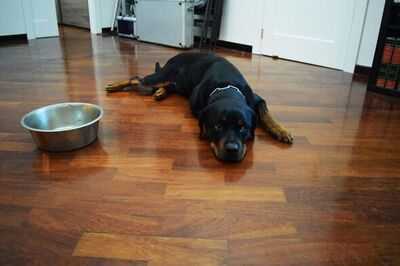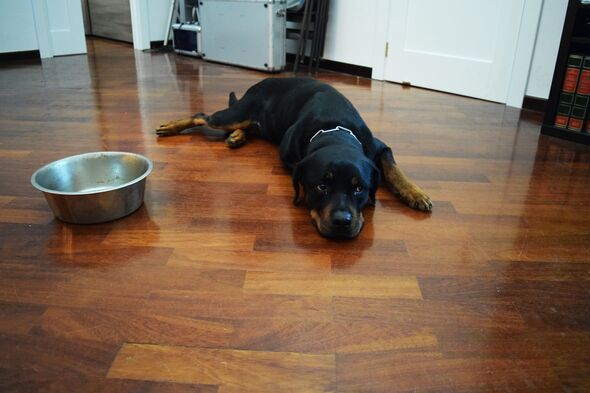

Does your suffer from separation anxiety? Alarmingly, a dog trainer has warned that many owners are making three mistakes that could actually be making the situation worse.
Expert Taylor Cezanne took to TikTok to explain that you can minimise your pet's suffering by applying the correct knowledge, which she went on to detail in her video. First, she explained that you should never assume your dog is mad at you or wants to punish you for leaving them.
"Trust me it doesn't mean they're mad if they peed on your furniture or they chewed up the rug when you're gone," she said. "It just means they have pretty bad separation and if it was on a scale one to three - three being the worst - it would be at that level."
Cezanne then expressed the importance of training dogs when they're at the right threshold. Explaining what this means, she said the threshold is the point where they go from calm to stressed to reactive. She continued: "The goal for true training and learning is to keep them under the threshold and gradually build their confidence."
Referrring back to her scale, she detailed: "Number one is a calm state of mind where your dog isn't reacting too much, whilst number two is pacing, whining and barking - the truth is if they're at level two or three then they're not ready to be left alone for long periods at all."
If this is the case, Cezanne suggests hiring a pet-sitter or have a friend or family member come over whilst you're gone. That led her on to her third point, in which she expressed the importance of "practicing" alone time.
"If you're not practicing alone time when you are actually at home then you're missing a huge trading opportunity," she said. "This is one of the easiest things you can do - you can desensitise your dog (to you leaving) by practicing it in 15-second increments."
"Crate training is the best thing for my dog," one user revealed in response. "He's calm and sleeps no matter how long he needs to be in there. He yelps to let me know he needs to get out but does not bark. Crate train crate train!"
A second detailed their own technique by adding: "We started practicing separation with my six-month old golden puppy in just going upstairs to see how he was without us. We can go upstairs and he just lay on the couch not caring."
And a third person advised: "My puppy does decent home alone, but when I'm home and I walk out of the room, she loses it! I also find the amount of stimulation and activity makes a difference as well."
Meanwhile, a fourth joked: "Mine is fine, but if someone takes his lead and walks away he comes back as if I left him for a million years."